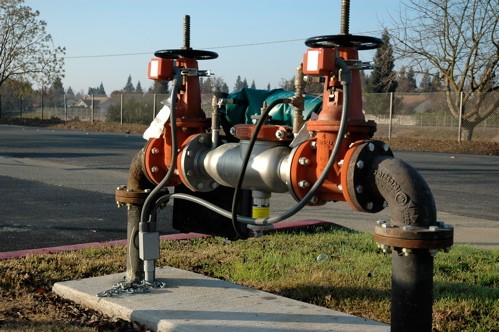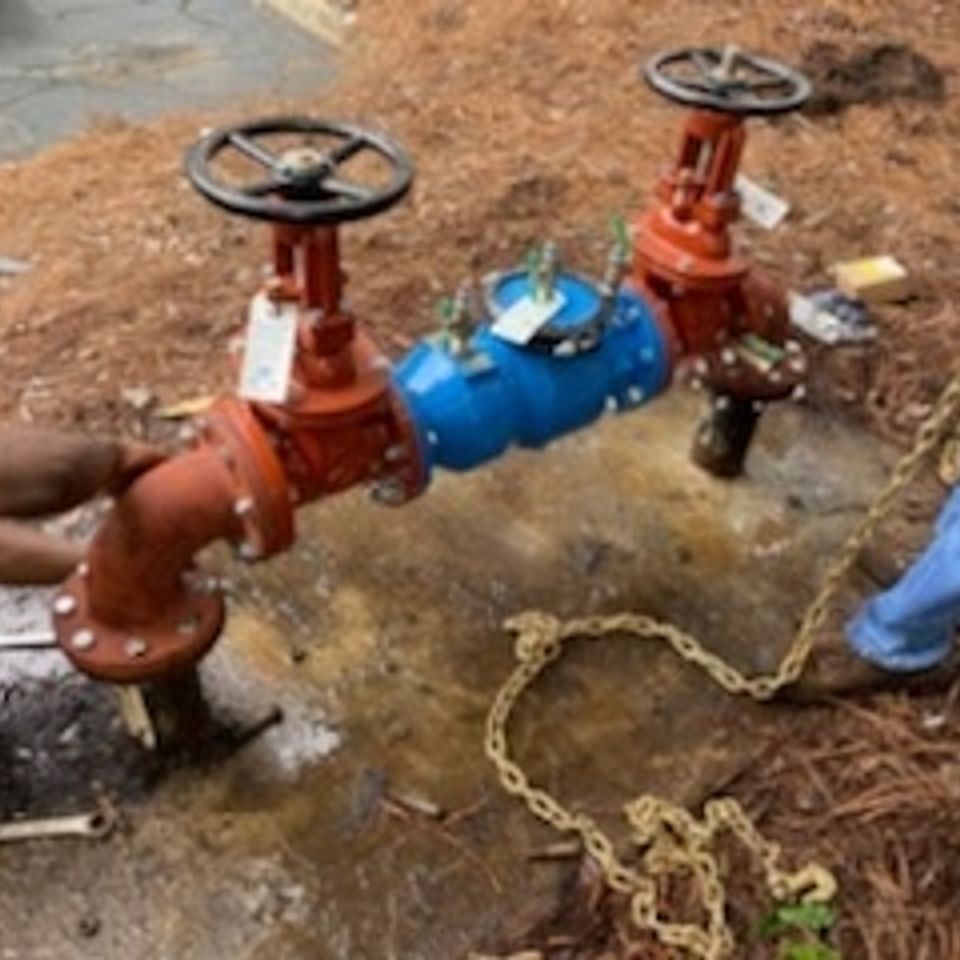Need I Carry out a Backflow Test on My Water?
Need I Carry out a Backflow Test on My Water?
Blog Article
How do you actually feel with regards to Commercial Backflow Testing?

Yes, you require to backflow examination your residence's water supply to ensure that the water is devoid of toxic substances and also hazardous degrees of chemicals. You ought to not attempt to perform backflow screening on your own since of the devices required as well as room for error. We suggest that you call a specialist plumber every couple of years to evaluate your water.
Heartburn Can Effect Both You and also Your City
Since hazardous heartburn can influence the public water supply in enhancement to a solitary building, lots of cities establish heartburn guidelines. The good news is, modern cities have backflow devices in place that protect the water system that comes from a lot of homes and commercial residential or commercial properties. The genuine risk originates from watering systems, which can damage the supply of water with harmful plant foods, manure, and other chemicals.
What Triggers Backflow?
A normal cause of backflow is a loss of water pressure that causes the water to siphon back right into the water supply. An example is clearing out a paint pail making use of a hose pipe. You fill up the paint pail up with water, leaving the tube in the pail. After time, there is a loss in water pressure as well as the pipe begins to draw the water back right into the water. As you can think of, there are currently chemicals from the paint that are entering the supply of water, potentially posturing a risk. However, many individuals are not even knowledgeable about backflow screening, yet there are several reasons it's so important.
Backflow Screening is Called For by Regulation in Specific Cities
Relying on where you live, you might really be required by legislation to backflow test your regulation. Iowa City maintains a record of all residential or commercial properties served by the city's water supply. The city calls for that specific "high-hazard" centers undertake heartburn screening. In many cases, houses such as residences and also apartment are influenced.
You Can Protect Against Heartburn
If you have a professional plumber set up a heartburn device, hazardous backflow is conveniently preventable. The plumber will also check for backflow and also identify if there is an active danger. The main function of a backflow tool is to avoid water from flowing backward right into your water. Plumbings mount the device on the pipelines in your house to make sure that the water only streams in the proper direction.
What is Backflow?
Simply put, heartburn is when water moves upwards-- the opposite instructions in the plumbing system. This is additionally known as "backpressure." When the water relocates this direction, it can combine with damaging toxic substances as well as posture a threat.
Call a Plumber to Check for Backflow Before It is Too Late
A plumbing company can quickly test your residence's water to establish if there are any type of hazardous chemical degrees. And if you do uncover that your water has high degrees of toxins, a plumber can conveniently set up a backflow avoidance tool.
Yes, you require to backflow test your home's water supply to ensure that the water is complimentary of contaminants as well as unsafe levels of chemicals. Many cities establish heartburn standards due to the fact that hazardous heartburn can affect the public water supply in addition to a single structure. A normal cause of heartburn is a loss of water pressure that creates the water to siphon back right into the water supply. After some time, there is a loss in water pressure as well as the pipe starts to draw the water back right into the water supply. The main objective of a heartburn gadget is to stop water from streaming backward right into your water supply.
WHY DOES BACKFLOW TESTING NEED TO BE DONE EVERY YEAR
What Is Backflow?
Toxic gas backing up into a building is one example of potential backflow issues, but backflow can occur in many other ways.
Backflow is generally referred to as the reversal of a liquid or gas in a plumbing system.
Most issues for the public occur with backflow resulting in contaminated drinking water. If you look up backflow issues online you’ll probably find references to “potable” water. That means drinking water.
There have been backflow issues in the past with drinking water. Chemicals, sewage and other contaminants have found their way into drinking water causing health issues for those that count on the fresh water.
What Causes Backflow?
In a residence or commercial building water generally flows one way. This normal flow is usually driven by consistent pressure in the water and waste system.
Anything that changes the normal pressure in the system can lead to backflow.
Fire hydrant use or malfunction can reverse the normal pressure in the system on a city line, but backflow can occur in a number of different ways.
Sometimes backpressure might be caused by someone using a garden hose and submerging the end of the hose in a pool of liquid. If pressure is lost the flow could reverse and contaminants could be released into the drinking water.
Anytime there is a connection between contaminants and the drinking water there is potential for a backflow issue. Sometimes these connections are not immediately obvious like the garden hose connecting to a building’s drinking water supply.
Backflow Regulations
The Environmental Protection Agency (EPA) provides guidelines and regulations for state and local governments regarding backflow. State and local governments also have their own guidelines and regulations for backflow prevention.
Arizona has its own backflow regulations.
Due to issues with backflow in the past, regulations require backflow preventer devices to be used in nearly all residential and commercial buildings.
A backflow preventer is a device that prevents backflow as cross-connection points where potential backflow issues may occur.
While backflow is not a common occurrence, preventers are in place to make sure there is no contamination should something malfunction or go wrong with a building’s water supply.

I'm very focused on Is backflow testing necessary? and I really hope you enjoyed reading the new blog post. Loved our post? Please share it. Let other people locate it. Thanks a lot for taking the time to read it.
Book
Report this page